When did World War One end?
World War One ended at 11am on 11 November, 1918.
This became known as Armistice Day - the day Germany signed an armistice (an agreement for peace) which caused the fighting to stop.
People in Britain, France and the countries that supported them celebrated.

Image caption, âHow London hailed the end of warâ
A front page headline taken from The Daily Mirror on 12 November 1918.
Image caption, Armistice brings The Great War to an end.
A front page headline taken from the Sheffield Independent the day after the fighting stopped.
Image caption, America as 'Le Grand Ami' meaning 'The Great Friend'
Germanyâs attacks on any ship sailing towards Britain caused the United States of America to join the war and try to bring peace to Europe.
1 of 3
What happened at the end of the war?
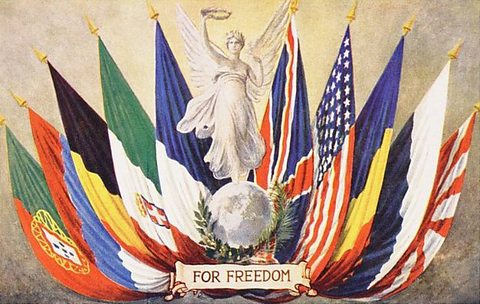
At the start of 1918, Germany was in a strong position. Russia had already left the year before which made Germany even stronger.
A few events turned things around:
- Britain and France counterattacked after Germany's Michael Offensive in March 1918.
- The German Navy was on strike.
- In April 1917 the United States joined the war against Germany.
Germany and her allies realised it was no longer possible to win the war.
The leaders of the German army told the government to stop. Kaiser Wilhelm, Germany's ruler, stepped down on 9 November 1918.

What did the Treaty of Versailles do to Germany?
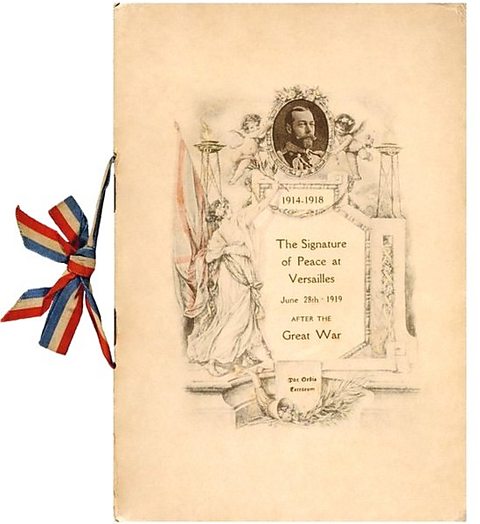
The leaders of the USA, Great Britain and France met in Versailles to decide what should happen next.
Germany, Austria and Hungary were not invited.
The agreement was called the Treaty of Versailles.
Germany was shocked by it because:
- They had to accept total blame for starting the war.
- They could not join the new League of Nations, where countries worked together for peace.
- Some places Germany used to own, like Alsace-Lorraine, were taken from them.
- They were banned from having an army of more than 100,000 men and from having any submarines or an air force.
People in Germany were angry. The country had to pay 132 billion gold marks (their currency before the Euro) to repair the damages of war. They became poor because of this.

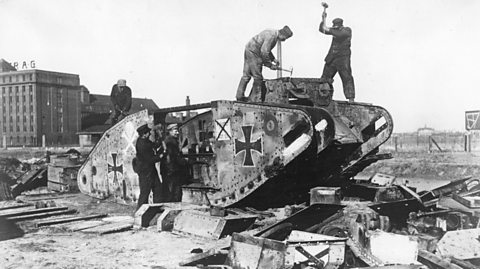
What happened to soldiers after the war?
Many former soldiers still suffered from shell shock or were disabled. It was difficult to forget about the horrors of the war.
Back in Britain, training centres were set up to support ex-servicemen and retrain them in new jobs, such as cobblers, electricians and jewellers.
Their lives were never the same again.
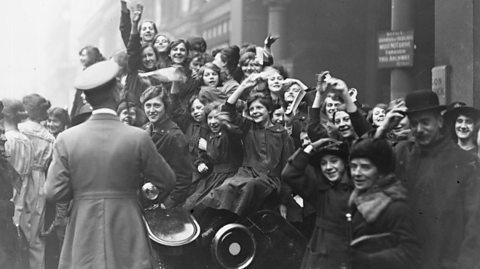
Activity 1: Quiz â How did World War One end?
Bitesize Primary games. gameBitesize Primary games
Play fun and educational primary games in science, maths, English, history, geography, art, computing and modern languages.

More on World War One
Find out more by working through a topic
- count21 of 43
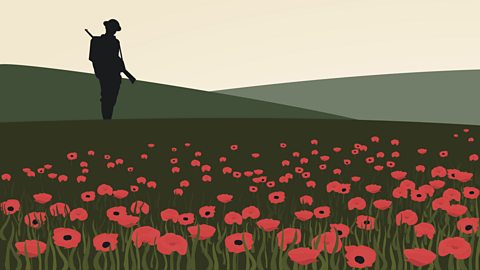
- count22 of 43
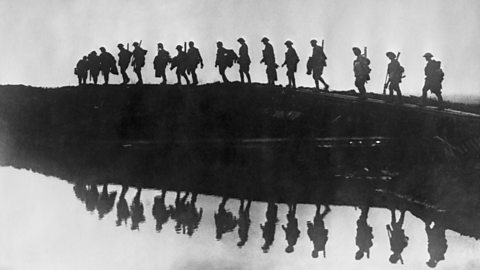
- count23 of 43
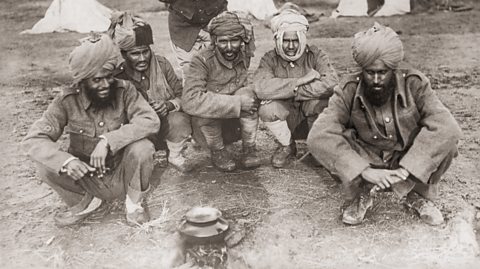
- count24 of 43
